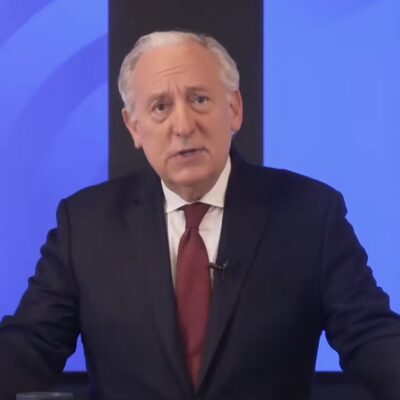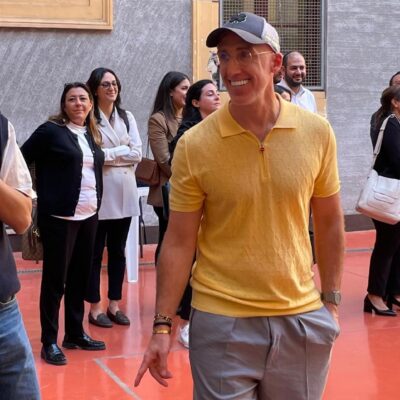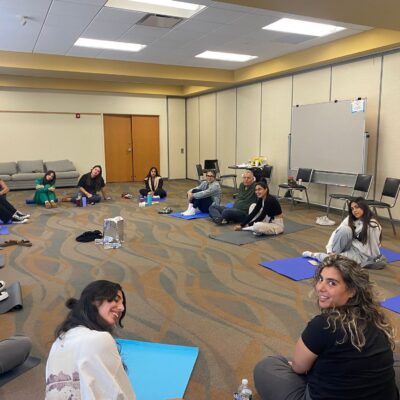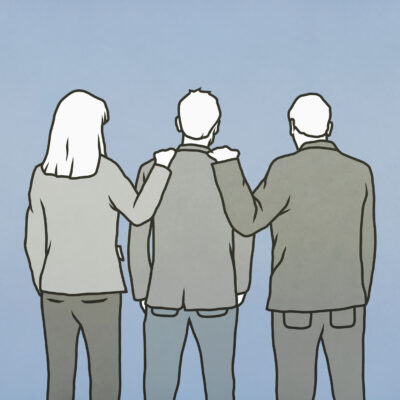Opinion
Facing the future
Supporting parents of teens
In Short
Research on adolescent mental health reminds us that our children benefit from connection, competence and feelings of empowerment. Frankly, we all do. How do we rebuild these? We create space and time for connection; we provide opportunities for competence; we listen and respond. We honor the experiences of children and their parents.
Way before the pandemic, I was worried about the parents of teens. I believe them to be the most underserved group in the Jewish world. There is support for other age groups and demographics, whether through schools or senior centers. But the parents of teens are largely on their own, unwelcome in schools and afraid. Adolescence is the age where many mental health issues emerge, from depression and anxiety to social fears to suicidal thoughts and actions. Teen brains are more vulnerable to drugs and alcohol. Parents are told both to leave their kids alone and support their independence AND that their kids are at huge risk.
Imagine that you were already afraid for your children and then there was a global pandemic. Our children missed regular developmental steps. I am convinced, for example, that we learn self-regulation in middle school – and we now hear so many complaints about kids who can’t self-regulate. The national data is terrifying – 42% of teens experience persistent feelings of sadness and hopelessness and 22% have seriously considered suicide. And the data is even worse by gender, with female-identifying teens suffering more often than male-identifying teens.

Kentaroo Tryman
Not surprisingly, our data focuses on kids. And it doesn’t tell us much that parents and professionals don’t already know. The numbers are pretty scary, especially for the parents of teens, who must face this level of stress every day. While some kids seem to be doing well, other parents face the difficulty of getting their children out of bed, and worry about how many times their kids text them in the middle of the day. They know that their kids are unmoored. They are afraid for their children.
Camps and schools have hired full-time employees to manage both the emotional needs of kids and calls from parents. There are new mental health positions, increased programming for mindfulness and stress reduction. Many camps have full-time staff to address parental concerns, creating daily blogs, sending photos and responding to anxious emails and phone calls.
The impact of COVID lockdown and COVID fear isn’t over. While some of us may be less concerned about transmission rates and exposures, the disruption of COVID will have lasting impacts. I wonder what these teens will look like as they navigate parenthood – will they have heightened rates of anxiety and depression, for themselves and for their children? Will they be more worried about childhood illnesses? Who will they be in mid-life? If we expect some long-lasting increase in anxiety and depression, shouldn’t we be thinking about how we can scaffold them for emotional literacy and self-care? Will they be able to self-regulate?
I keep thinking about refugees. We respond to refugees by FIRST providing food, shelter and clothing, but we don’t stop there. After those basic essential needs are met, we scaffold with language classes, social outlets, shared stories. We build connections.
Research on adolescent mental health reminds us that our children benefit from connection, competence and feelings of empowerment. Frankly, we all do. How do we rebuild these? We create space and time for connection; we provide opportunities for competence; we listen and respond. We honor the experiences of children and their parents.
In many ways, the pain and fear parents feel for their children might be ameliorated if we began to think about helping support them in the present and future. Imagine if every program for teens had a parallel program for their parents. Some might say the kids won’t like it, but this generation is closer to and more dependent on their parents than previous generations. Imagine if we helped them to share, if we began to normalize how difficult and scary parenting teens really can be. Imagine if we created spaces for mutual support. Instead of simply bemoaning their pain and moving on, what if we created spaces for teens and their parents to process without pathologizing? These might be as simple as regular pizza nights with their peers, or as complex as parenting seminars. I wouldn’t envision these as teaching moments, but as connection opportunities. Camps, shuls and JCCs could reach out to parents, and communities could provide both content and space for sharing. Yes, these moments may cost money. Yes, we may not see any immediate impact. And how could we not invest in our children and their futures?
What do we need as we face the future? We need to be planning for connection, building competence. We need to strengthen our children’s emotional literacy and resilience. We need to stop pretending nothing important has happened to us. We need to create supports for kids AND their parents as we move forward with invisible scars.
Betsy Stone is a retired psychologist who consults with camps, synagogues, clergy and Jewish institutions. She is the author of Refuah Shlema, a compilation of her previous eJP articles, recently published by Amazon.

 Add EJP on Google
Add EJP on Google









